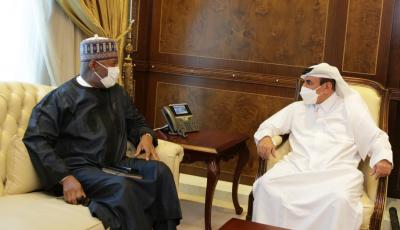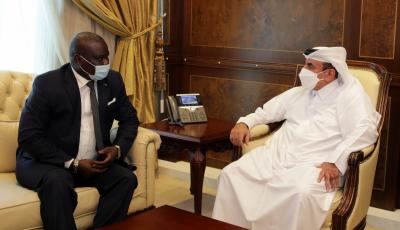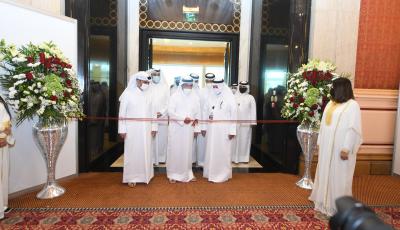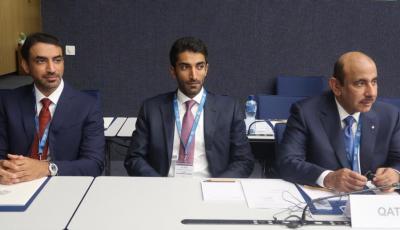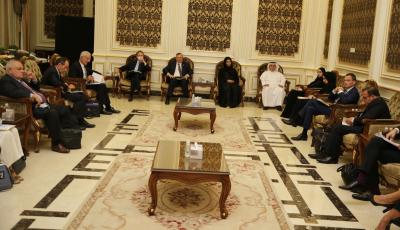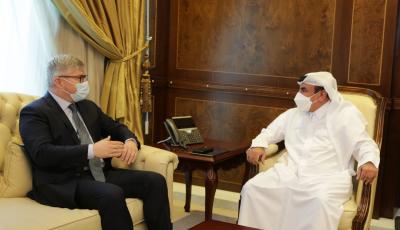
Minister Meets with ICAO Secretary General
Doha – QatarMinister of Transport and Communications HE Jassim Saif Ahmed Al-Sulaiti met with the Secretary-General of the International Civil Aviation Organization (ICAO) HE Juan Carlos Salazar, who is currently visiting the country.The meeting, which was held at the ministry's offices today, discussed Qatar-ICAO relations in the field of civil aviation and means of further enhancing them.The meeting was attended by Civil Aviation Authority (CAA) Chairman HE Abdulla bin Nasser Turki Al-Subaey.

